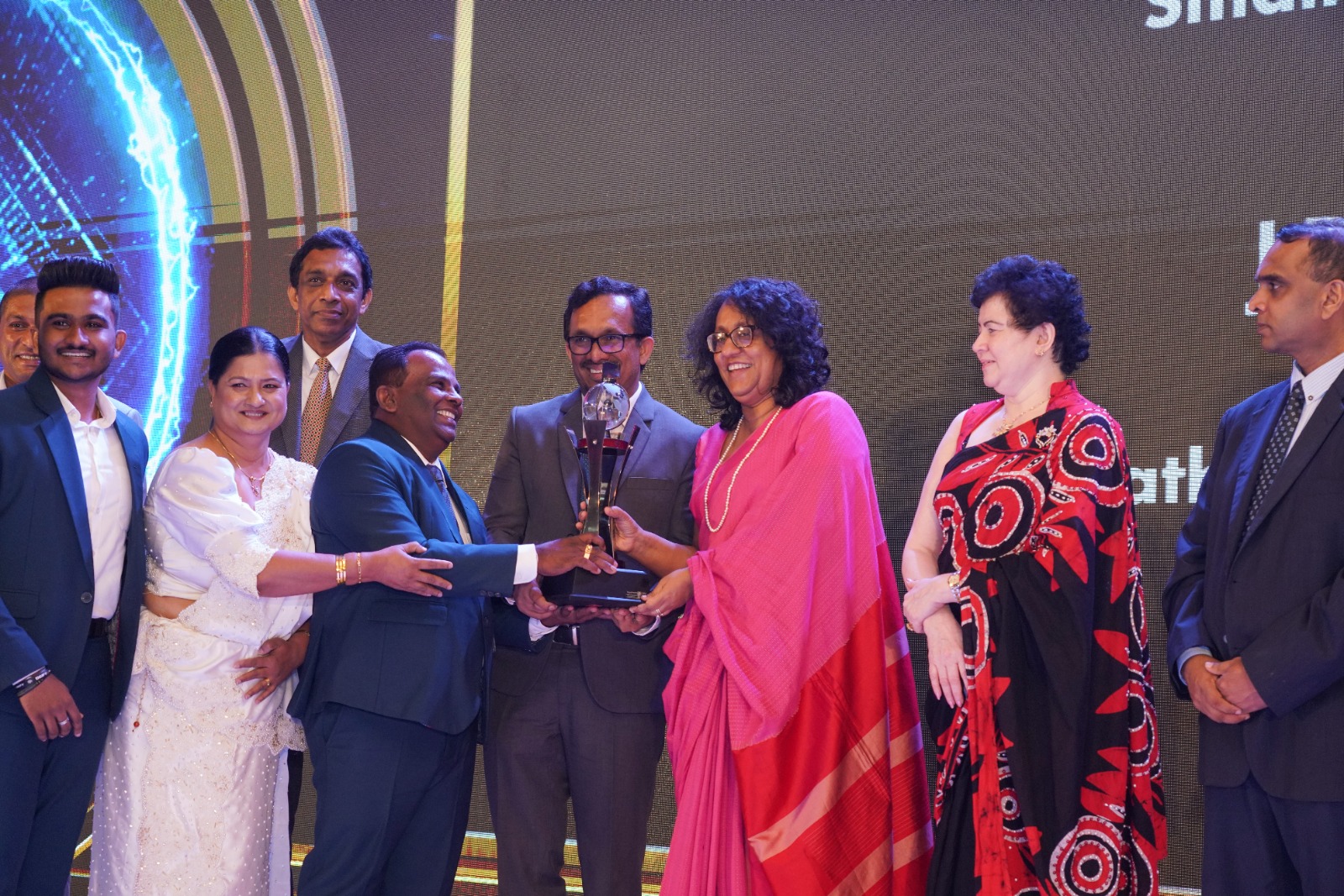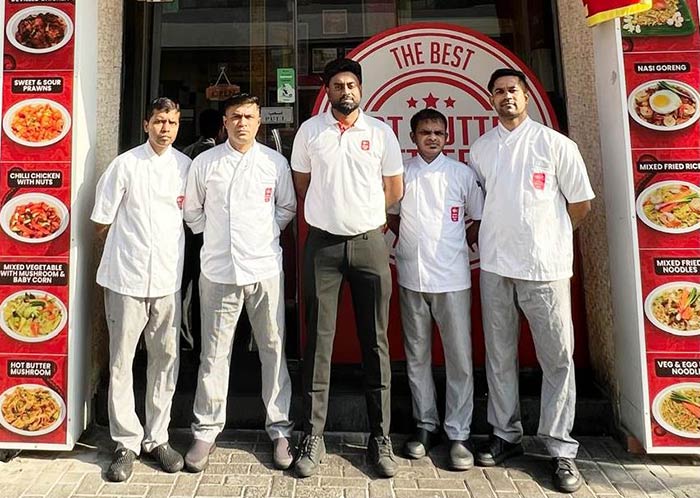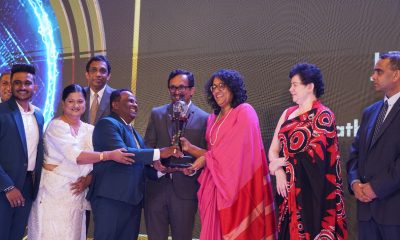Business
Priority for ‘citizen-centric digital governance’

There is an urgent necessity for Sri Lanka to develop new business models along with the adoption of new technologies and platforms as Sri Lanka grapples with issues growing out of the current pandemic. In the days ahead, the fostering of citizen-centric governance consequent to the use of the digital media in the state sector will ensure that the public will have at its disposal a wide range of essential services expeditiously, President Gotabhaya Rajapaksa said yesterday while inaugurating the Sri Lanka Economic Summit 2020, organized and conducted in virtual mode by the Ceylon Chamber of Commerce.
Extracts of the address:
This year, with the prevailing global pandemic, the Ceylon Chamber of Commerce has taken the commendable step of hosting this summit on a virtual platform.
During the past six weeks, the Government has focused intensively on containing the threat posed by the second wave of the virus. However, unlike in the early stages of the pandemic, a lot more is known about it now. This allows us to better balance the twin imperatives of containing the virus on the one hand and ensuring continued economic activity on the other. We must all adapt to this new normal.
In some ways, this new normal has had beneficial consequences. It has forced the adoption of many new work practices. Working from home has been normalised for most knowledge workers. Offices where the physical presence of staff remains necessary are devising means to improve efficiency so that work can be carried out even by a skeletal staff. Innovative technology driven solutions have been adopted to solve logistical problems. Consumers have become more familiar with using online platforms for day-to-day activities, whether in accessing financial services or for shopping.
Such changes can potentially transform how economies operate even after this pandemic is a thing of the past. If our institutions are agile and adapt quickly, we will see gains in productivity resulting from these changes.
I therefore strongly encourage the development of new business models, adoption of new technologies and platforms, and improvement of infrastructure needed to support this productivity enhancing transformation. Investment is also needed in human resource development to enable our workers to make the most of these changes.
It must be admitted, however, that some government institutions may lag behind in this regard at the moment. This is due to legacy problems including lack of infrastructure, process engineering, and training. Changing this is one of my key priorities.
The very recent establishment of a separate Ministry of Technology under my direct purview is an important step in our overall drive towards digitization. Fostering the creation of a “Technology Based Society” that improves services available to citizens whilst enabling our industries to compete globally is a key pillar of the vision I articulated before my election as President.
By converging four prominent technologies—social, mobile, analytics, and cloud—we have the potential to transform the way governance works. The recent introduction of the Staysafe.gov.lk website to ease COVID19 contact tracing is a case in point.
More broadly, the fostering of citizen-centric digital governance will ensure that services such as obtaining National Identity Cards, Passports, Birth Certificates, Death Certificates, Driving Licenses, Land Deeds etc., is made faster and more convenient to the public.
The digitisation of the National Persons’ Registry in particular will enable a more streamlined and secure process for identity verification. This will in turn build the foundation for improved online service delivery in many other areas, including financial services and ecommerce. It will also greatly enhance the Government’s ability to effectively widen the tax base, which will be one of the key factors in improving our fiscal position.
A significant issue in Sri Lanka’s current economic context is the extremely high debt burden we are faced with. The large volume of pending debt repayments is a matter of concern. It is important to stress, however, that Sri Lanka has always met its debt obligations on time and in full, and that we will continue to do so.
Nevertheless, our overreliance on loans must come to an end. That is why the focus of the Government is on fostering investments. We must attract more Foreign Direct Investment and encourage more local investment to drive our economic growth. With this in view, the Government is bringing in new laws to fully protect investments. We are also committed to enhancing the ease of doing business in Sri Lanka so that returns on investment can be generated faster.
In this context, I must also note there have been several instances of projects, including some funded by foreign Governments, that have stalled due to various reasons. Such delays are deeply problematic because they inhibit the benefits of these projects from reaching the people. They also create a negative picture about the way the country operates.
The Government is keen on addressing such problems that discourage investors. I note with interest that our closest friend and partner India is in the process of setting up a digital unified single window clearance system so that access to regulators, policymakers and facilitators will all be available at one point for investors.
Such mechanisms improve the speed and ease of doing business. They also enhance transparency and reduce corruption. Mechanisms to monitor project implementation and enable intervention when required are also important. Means of introducing these are being assessed.
The theme of this year’s Economic Summit—Roadmap for Take Off: Driving a People-Centric Economic Revival—is very appropriate for our present circumstances. Several key economic areas have been badly affected.
The worst hit has been Tourism, which usually contributes so much to our economy. Leaders in this industry together with the medical community must set out a plan to restart tourism as soon as possible. This plan must adhere to all health protocols and ensure tourists have an enjoyable stay in Sri Lanka while remaining isolated from the wider public. By imposing minimum lengths of stay and attracting high-spending tourists, it should maximise earnings from tourism so that the economy benefits overall.
Especially since the number of tourist arrivals may need to be limited early on, we should first reopen to the highest spending tourists we can attract. This can also reposition Sri Lanka as a destination for higher end tourists, resulting in higher revenue generated by the industry in the long term.
Despite its overall negative impact on the economy, the current situation has nonetheless provided an impetus for improvements in certain sectors including manufacturing. Increased global demand for Personal Protective Equipment has encouraged many of our strong, well established companies in the apparels sector to pivot to manufacturing these products.
I am in fact glad to note that Sri Lanka’s export revenue in 2020 overall has fared considerably better than the ongoing pandemic would have initially led us to anticipate. This is largely due to such commendable efforts by our private sector.
We must also understand that the disruption of global value chains and supply chains, and constraints on traditional manufacturing hubs, create space for countries like Sri Lanka to innovate, produce new things, and enter new markets.
Our rising entrepreneurs as well as established companies must seek out new opportunities, moving beyond their comfort zones to explore new ways to deploy their talent and capital. Instead of relying on our geostrategic position and traditional industries alone, we must seek new frontiers for our resources.
Many companies in Sri Lanka have proven their ability to tackle complex manufacturing in some industries. Their capital, management expertise, and well-trained, experienced human resources should be deployed in new areas.
With the Government as an enabler, the private sector must expand its role in the economy. It has often been pointed out that the private sector is the engine of growth. However, for the private sector to truly live up to this reputation, it must make bold investments that can potentially realise outstanding returns, instead of continually adopting conservative, low-risk strategies.
The Government will play its part to unleash the full potential of the private sector so that the interests of our people will be best served. The Budget for 2021 contains a range of initiatives designed with this in mind.
The Agriculture, Fisheries and Poultry sectors will be exempted from income tax for the next five years. Improving productivity and enhancing earnings from these sectors is critical. The private sector must introduce new technologies that enable farmers to produce more, and to target lucrative new export markets.
Encouraging wider adoption of organic farming and traceability mechanisms will help increase the price of our produce internationally. Finding new markets and investing in better processing, storage, packaging, and transportation is important, together with increasing value addition through agricultural product processing.
Tax concessions will be granted for strategic investments larger than ten million US dollars in value for agricultural product processing, IT, dairy, fabric, tourism and export industries. Exports are being strongly encouraged through the removal of import taxes on required raw materials, machinery, and equipment used by direct and indirect exporters.
New investment into digital infrastructure is being strongly encouraged. Companies in the Information Technology space must make full use of these incentives to expand and seek new markets for Sri Lankan talent. Companies must also invest more in IT education and training.
Given the fast-changing nature of the industry and its high earnings potential, companies can gain enormous returns by training large numbers of young people in this field themselves, without over-relying on Government funded institutions for new recruits.
Vocational and technical education in general can benefit from much greater private sector investment, for which the Budget also provides incentives. The forced migration of education to digital platforms has shown that there are opportunities to be exploited in online education too. This is an area to which more attention can be paid by established companies as well as by Start Ups and individual entrepreneurs.
Small and Medium Enterprises and Start Ups are being encouraged through concessionary funding schemes and the establishment of a stronger Development Bank that should lend based on assessments of project viability instead of collateral.
Nascent domestic industries will be supported through cess that will be selectively imposed. Other initiatives including simplifying Customs Duty and related streamlining will facilitate functional economic improvements. A range of capital market incentives are also being introduced to encourage investment.
Setting the platform for a robust economic revival requires both the public sector and the private sector to work in partnership. We must ensure that all our initiatives in various sectors are guided by a shared central vision and driven by clear objectives and actionable plans. All initiatives undertaken by both the public and the private sector must contribute to uplifting our growth trajectory.
In this context, I am aware that the Ceylon Chamber of Commerce has prepared an Economic Acceleration Framework with the participation of over 70 industry professionals for the consideration of the Government. I appreciate this initiative and look forward to perusing this document. Value generating proposals will certainly receive the Government’s serious attention.
I trust that over these two days, the speakers, panellists and the leading luminaries from the public and the private sector participating in this Summit will give considered thought to innovative ways and means of fostering a truly people-centric economic revival.
Together, we have the opportunity to make a transformative and beneficial difference to Sri Lanka’s future.
In concluding these remarks, I wish to reassure you of my great and sincere confidence that together, we shall.
Business
Government ready to provide necessary support to protect and develop businesses – Prime Minister

Prime Minister Dr. Harini Amarasuriya stated that the government is committed to safeguarding businesses and providing the necessary support for their development.
She made these remarks while addressing the “National Industrial Excellence Awards 2024,” organized by the Industrial Development Board, held on February 21 at the Eagle Lakeside Hotel, Colombo.
During the ceremony, Prime Minister Dr. Harini Amarasuriya presented awards to the three best national industry brands of 2024:
• JBRICKS PVT LTD – Small-scale category
• SINGHE Furniture Manufacturer PVT LTD – Medium-scale category
• EARTHFOAM PVT LTD – Large-scale category
In her address, Prime Minister Amarasuriya commended the resilience and dedication of Sri Lankan entrepreneurs, especially amid challenging economic times. “It is a pleasure to join you at this occasion. Witnessing your commitment to industry during these difficult times is a source of strength for us. The government is dedicated to protecting businesses and providing the necessary support for their development. Your involvement in these industries is crucial for our economic recovery,” she stated.
She further emphasized the importance of inclusive industrial growth, highlighting the significance of women’s entrepreneurship in building economic resilience. “Industries not only strengthen the economy but also generate vital employment opportunities. Despite challenges such as resource constraints, cultural barriers, and gender disparities, you continue to drive progress. We must amplify Sri Lanka’s brand globally. To the award-winning entrepreneurs: this is not the end of your journey but the beginning. Let us work together to rebuild our economy through industry,” the Prime Minister concluded.
Minister of Industries and Entrepreneurship Development, Mr. Sunil Handunnetti, also addressed the gathering, underscoring the importance of promoting Sri Lankan products globally. “Having a brand is vital, but it is even more valuable when it is recognized as Sri Lankan-made. Our goal should be to elevate the rupee to the strength of a dollar,”he remarked. The Minister highlighted initiatives in the recently presented 2025 budget that favor industrial growth, announcing plans for a national tax policy by the end of the year. “We aim to foster an industrial culture from the school level, enhance export revenue, and develop all sectors of industry. We call upon you to join us in this national endeavor,”he urged.
The event was attended by a distinguished gathering, including Deputy Minister of Industries and Entrepreneurship Development Chathuranga Abeysinghe, Secretary of the Ministry Ms. Thilaka Jayasundara, and numerous entrepreneurs from diverse sectors, all united in their commitment to drive Sri Lanka’s industrial advancement.
[Prime Minister’s media Division]
Business
HNB Assurance Group achieves strong financial performance in 2024

HNB Assurance Group (HNBA and HNBGI) has once again delivered impressive financial results for the year 2024, continuing its remarkable growth trajectory. The Group reported a 21% increase in Gross Written Premium (GWP), rising from Rs. 18.8 billion to Rs. 22.7 billion. Additionally, the Group recorded a consolidated Profit After Tax (PAT) exceeding Rs. 1.8 billion, marking a 7% growth compared to the previous year.
HNBA’s strong financial position was further highlighted by its upgraded Fitch rating, making it the only life insurer in Sri Lanka with an ‘A’ rating. HNBGI also earned an ‘A’ rating, positioning it among Sri Lanka’s leading general insurers.
Commenting on the achievements, Chairman Stuart Chapman expressed pride in the Group’s consistent growth, with a 22% average annual increase in GWP over the past four years. He also noted the 42% growth in share price by the end of 2024, reflecting market trust in HNBA’s stability.
CEO of HNBA, Lasitha Wimalaratne, highlighted significant milestones, including a 7.5% market share and a 27% growth in New Business Premiums. CEO of HNBGI, Sithumina Jayasundara, praised the company’s resilience, reporting a 59% increase in Profit After Tax and exceptional growth in non-motor insurance segments.
Overall, HNBA Group’s performance underscores its strong market presence and commitment to sustainable growth.
Business
Chinese Dragon Café marks first anniversary in Dubai

Chinese Dragon Café (CDC), Sri Lanka’s iconic Chinese restaurant chain, celebrates the first anniversary of its Dubai outlet. Established in 1942, CDC has become known for blending Sri Lankan spices with Chinese culinary techniques, creating a unique dining experience. The Dubai outlet, which opened in October 2023, is the first international expansion for the brand, representing Sri Lankan Chinese cuisine on the global stage.
CDC’s Managing Director, Udeshi, expressed pride in the warm reception the restaurant has received in Dubai, highlighting the universal appeal of its fusion dishes. The Hot Butter Cuttlefish, Nasi Goreng, and Seafood Fried Rice are some customer favorites. CDC’s Dubai outlet is also available on major delivery platforms, allowing diners to enjoy authentic Sri Lankan Chinese cuisine at home.
-

 Features7 days ago
Features7 days agoDon’t betray baiyas who voted you into power for lack of better alternative: a helpful warning to NPP – II
-

 News5 days ago
News5 days agoCommercial High Court orders AASSL to pay Rs 176 mn for unilateral termination of contract
-

 Sports4 days ago
Sports4 days agoSri Lanka face Australia in Masters World Cup semi-final today
-

 Features7 days ago
Features7 days agoTwo films and comments
-

 Features6 days ago
Features6 days agoUSAID and NGOS under siege
-

 Features6 days ago
Features6 days agoDoing it in the Philippines…
-

 News4 days ago
News4 days agoCourtroom shooting: Police admit serious security lapses
-

 Midweek Review5 days ago
Midweek Review5 days agoImpact of US policy shift on Sri Lanka




















